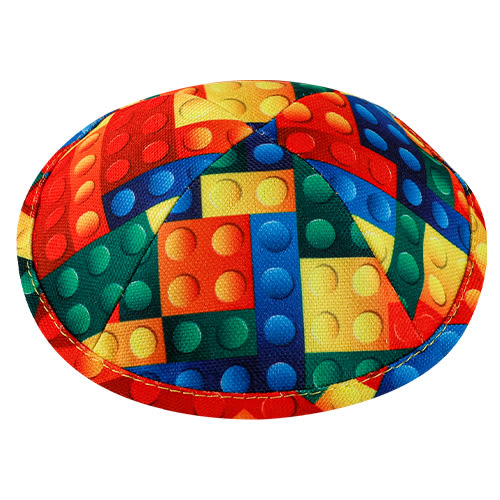
Robots or Educated Kids?
True Torah education should produce self-motivated, educated, spiritually cognizant lovers of G-d and fellow man, and not robots. One tiny burnt fuse deactivates a robot…

Dear Rabbi Brody,
I have been thinking a lot about the different sides of Jewish child education and didn't really know who to ask. The Breslev Israel web site has more truth in it than I've ever seen at one time in one place. I see that Rav Shalom Arush and you have the power to boil things down to its basic component. This helps make things clearer and more manageable. I was hoping that you would be able to do this also for me as well, and I’m sure that many of your other readers are grappling with the same indecision.
I wanted to also ask about the policies that schools have to reinforce a uniform standard of religion. Such as boys over bar mitzvah age always wearing white shirts and never riding bicycles, kippot of a certain size, girls’ dresses not being too long, no roller blading, etc. As far as I know these are not mandated by religious law, but accepted practices to further separate us from the nations of the world. People say that it is less confusing for the children if everyone is the same. But is that our goal in education? I was told that is why schools told all their woman teachers not to wear wigs during the Indian hair problem. But wouldn't it be better if each teacher explained to her class why she did what she did?
Another subject that I'm confused about is tests and homework. Are these really the right way of education? Is there another way to get the same benefits without the pressures of tests and homework? When the boys get older they are in school for over 9 hours. Is it fair to expect a child to want to do homework and study for tests when he gets home?
I look forward to your reply. Maybe you’ll consider making the answer public on Breslev Israel for everybody’s benefit. With appreciation, P. Singer, USA
Dear PS,
Thanks for the superb question; child education is the most important subject on our agenda, the determining factor of Judaism's future. With Hashem’s help, here are your answers:
Uniform code of religion: Any school or Yeshiva belonging to a specific group (Chassidic, Sephardi, Lithuanian, etc.) has the right to make demands as it sees fit. On the other hand, a parent has the right to send a child to whatever school that parent identifies with. Therefore, it's not my place to criticize what the Belzers, the Gerrers, or the Vishnitzers do in their schools. If you don't like the demands of School A, move your child to School B; it's that simple. Ah, if School B has a lower academic level, then weigh the pros and cons, belay the criticism, and transfer the child to School A. Ah, what if you don't like School A or B? Your options are then:
1) Start your own school;
2) Send your child out of town, or –
3) Educate at home.
Educating at home is not easy, but where the parents are capable (or can afford it), the results are phenomenal. Plus, you decide the values you want to instill in your children.
Specifically, you asked about the dress code. I am definitely in favor of girls' uniforms. Having a uniform spares the girls from low-income homes from daily sorrow and embarrassment; they're wearing hand-me-downs while the rich girls are wearing Lord & Taylor or Sacks Fifth Avenue. Demanding that post Bar Mitzva boys wear white shirts and dress slacks is no big deal; a boy wearing a Harley-Davidson or Pink Floyd T-shirt with jeans and beach sandals is mentally ready for a barbecue, and not for a Gemara lesson. As far as head-covering of female teachers goes, each should certainly act according to the school administration's guidelines.
Many extracurricular demands turn into a joke. Demands – if made – should be uniform, logical, and enforced, otherwise they teach children that Judaism is a cat-and-mouse game, Heaven forbid. If you take bicycles away from girls (for obvious reasons of modesty), then you must allow them an alternative, such as scooters. As far as boys are concerned, I prefer to encourage learning-enhancing activities such as hiking rather than forbidding less-desired activities such as roller blades. Always shoot for the positive, and not for the negative. When kids are strapped with prohibitions, they easily rebel. When you shape them positively, they're quicker to learn the love of Torah and the love of Hashem, and are less likely to become religious robots.
Goals in Education: So many people today are worried about the rote, the uniform, conforming and the routine, they forget about the soul of Jewish education, which is emuna, prayer, and personal example. Therefore, no matter how or where you educate your children, emuna should be the number-one goal. Robots don’t have emuna.
 Homework. In order to get olive oil, you must apply pressure to the olives. Teaching children how to cope with a controlled level of pressure (established by a competent professional educator only), such as project deadlines, tests, and homework, prepares them for a future that will be boat-loaded with pressures and demands. Kids that are poo-pooed and babied when they're young become emotional cripples as adults; the slightest stress situation paralyzes them or makes them lose their emotional keel. For girls, homework is important – it keeps them off the street. For pre-yeshiva age boys, homework keeps them away from passive entertainment that degenerates their minds and bodies.
Homework. In order to get olive oil, you must apply pressure to the olives. Teaching children how to cope with a controlled level of pressure (established by a competent professional educator only), such as project deadlines, tests, and homework, prepares them for a future that will be boat-loaded with pressures and demands. Kids that are poo-pooed and babied when they're young become emotional cripples as adults; the slightest stress situation paralyzes them or makes them lose their emotional keel. For girls, homework is important – it keeps them off the street. For pre-yeshiva age boys, homework keeps them away from passive entertainment that degenerates their minds and bodies. Extracurricular activities: In my humble opinion, the Jewish home should be free of passive entertainment, and should encourage active pastimes. Augment girls' educations with exercise, swimming, art, music, cooking and other like enrichment classes and activities. Boys can blow off steam with exercise, cross-country running, bicycling, swimming, woodworking, and especially hiking and outdoor activities such as rock-collecting, bird and tree identification, and trail navigation. Such activities enhance Torah learning, channel boys' energies into a positive lane, and help them develop self-confidence. Many people have asked me about martial arts for orthodox boys: Unless the instructor is a G-d fearing individual, martial arts won’t be conducive to the midot (character traits) we'd like to instill in a student of Torah.
Our goal in Torah education is to produce self-motivated, educated, spiritually cognizant lovers of G-d and fellow man, and not robots. One little burnt fuse deactivates a robot. On the other hand, fire and flood don't discourage a courageous soldier of Hashem, who keeps on fighting despite insult and injury, until the war against ignorance is won. Our goal in education is to equip our children with spiritual strength and the tools they'll need to choose between good and evil, in the ultimate goal of becoming men and women of valor.
Best regards and my heartfelt wishes for your success, Lazer Brody











Tell us what you think!
Thank you for your comment!
It will be published after approval by the Editor.